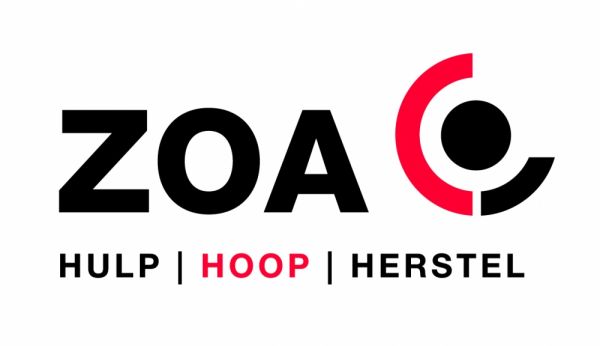Location
7320 AC
ZOA is an international relief and recovery organization supporting vulnerable people affected by violent conflicts and natural disasters in fragile states, by helping them to realize dignified and resilient lives.
ZOA operates in more than 15 countries, in difficult locations where our field staff directly provides assistance to the most vulnerable victims of displacement. The countries in which ZOA is present are Afghanistan, Burundi, DR Congo, Ethiopia, Jordan, Kurdistan Region of Iraq, Liberia, Myanmar, Philippines, South Sudan, Sri Lanka, Sudan, Syria, Uganda and Yemen.
ZOA is active in insecure and volatile regions: serving Syrian refugees in the Middle East, uprooted people in war-torn South Sudan, displaced Yezidis in Northern Iraq and South Sudanese refugees in Ethiopia, to name a few.
Members:
Resources
Displaying 16 - 17 of 17SRJS_ToC_TZ Sustainable and inclusive management of the Rukw
General
The Rukwa-Katavi landscape is home to over 1.5 million people and is an area rich in wildlife and biodiversity, containing Miombo woodlands, the Katavi National Park, Lake Rukwa and part of Lake Tanganyika. This area has experienced rapid changes over the last few years due to large investment schemes that are promoting economic and infrastructural development. Large areas of forest are being cleared for agriculture. Major roads are being built and power lines are in the planning. Coal mining is scheduled to begin in 2017 and oil exploration is underway in Lake Tanganyika. Licenses for helium extraction have been issued for Lake Rukwa. On the community level, poor or no land use planning and illegal activities have resulted in further environmental degradation of the landscape, eroding the important ecosystem services they provide. Unsustainable farming practices, such as slash and burn activities, charcoal production and illegal logging are destroying forests and important wildlife habitats. Illegal cultivation in buffer zones on river banks has led to the siltation of rivers. Irresponsible use of pesticides for agriculture and mercury for artisanal gold mining are polluting the Katuma River. This pollution, coupled with illegal fishing in the lakes, is threatening fish stocks. Over 60% of women are engaged in farming activities and thus play a vital role in food security and food sovereignty, but most lack access to and control over land and are poorly represented in decision-making organs. Together with erratic rainfall that is affecting crop yields, these unsustainable practices are threatening food and water security and local livelihoods, as well as endangering the area’s important wildlife corridors.
LAND-at-scale Burundi: Amahoro at Scale – An integrated approach towards improved tenure security and land gov
General
Burundi has the world’s highest hunger score and around 45 percent of the population is affected by food insecurity. The country copes with increasing scarcity of land as a result of increasing population size, returnees and IDPs and climate change. With the majority of Burundians depending on agriculture for their food and livelihoods, land scarcity makes this reliance on agriculture precarious. This pressure on land causes elevated levels of land disputes with over 55% of all court cases being related to conflicts over land. The results of these disputes are often highly uncertain, as land is commonly not registered and no good documentation of ownership or use rights exists. ZOA has successfully implemented Land Tenure Registration projects in the Makamba-province, but the sustainability of the local land offices (SFCs) remains an issue, as well as guaranteeing gender equality in land governance.The objective of this LAND-at-scale project is to improve tenure security of women and men, conflict resolution and to create the basis for improved agricultural production, access to justice and sustainable, climate smart agri-businesses. This will be done through the following project strategies: 1) Implementing the land tenure registration approach in Nyanza Lac through the operationalization of the SFCs. 2) Ensuring local land conflict resolution mechanisms can effectively resolve land conflicts in Nyanza Lac. 3) Developing a business case that will result in the rollout of (financially) sustainable SFCs at national level, which is validated through multistakeholder engagements.


